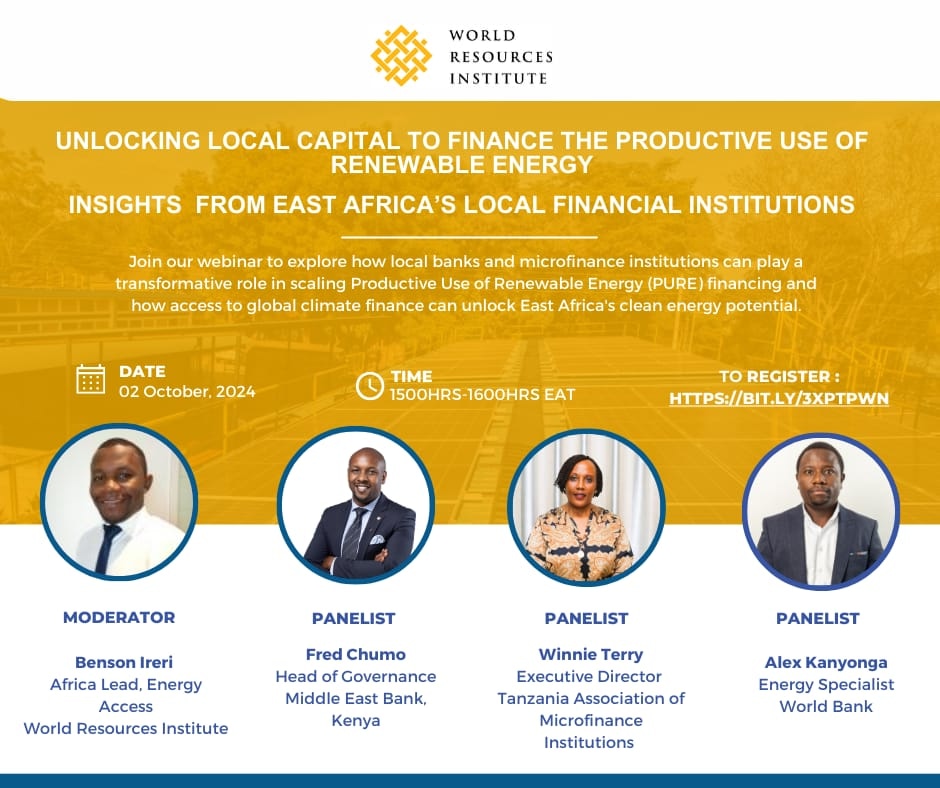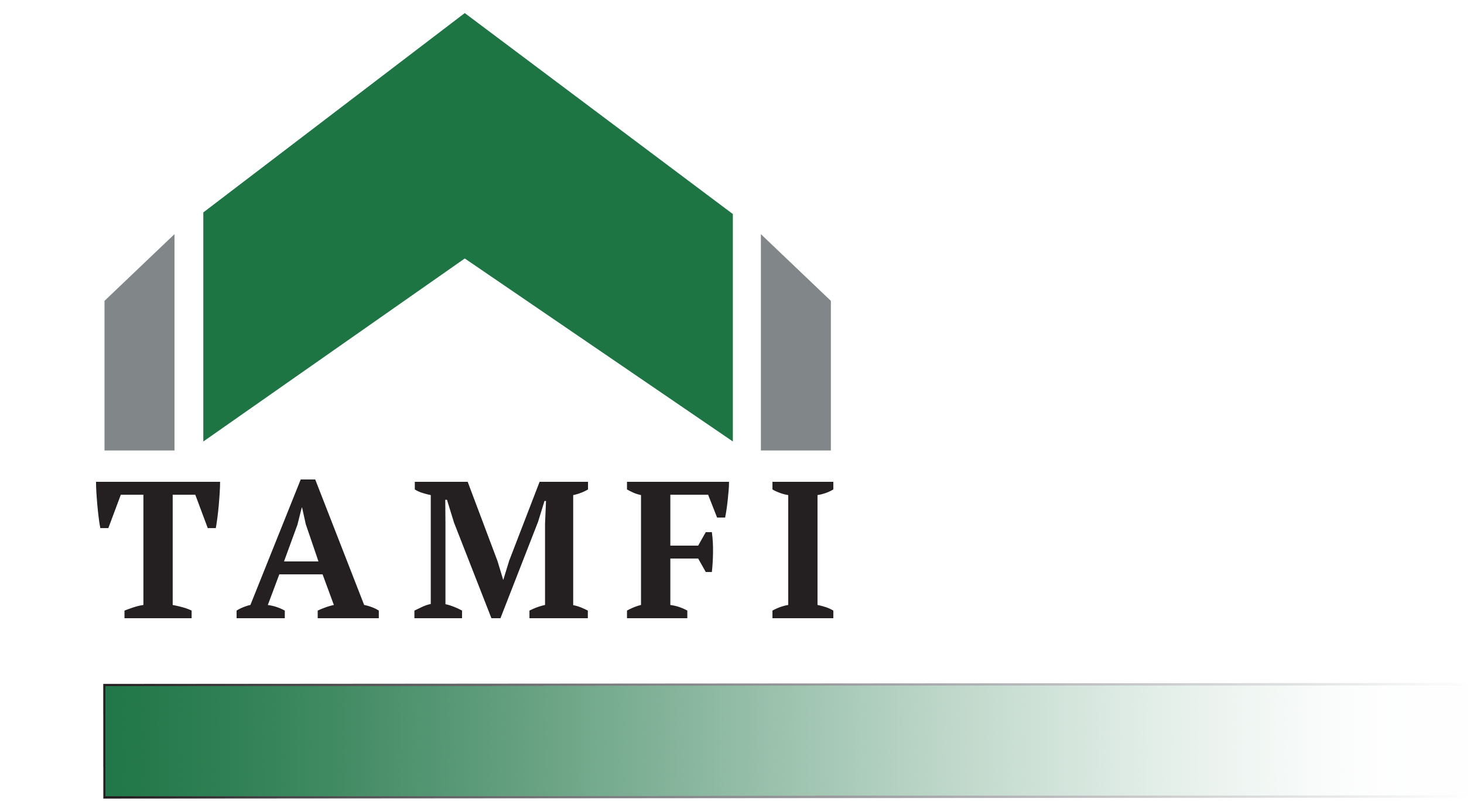
World Resources Institute organized a webinar where they presented a new working paper on unlocking PURE finance through local financial institutions. They also addressed the challenges faced and the interventions needed to accelerate PURE financing in East Africa.
The paper explores opportunities in Ethiopia, Kenya, Uganda, and Tanzania to mobilize and scale up financing for the fast-growing PURE sector, which drives energy access and economic growth. It highlights the critical role of local financial institutions (LFIs) in accelerating PURE lending to small- and medium-sized enterprises (SMEs) and end users in East Africa. Recommended interventions in this paper focus on eliminating existing barriers and galvanizing interest from investors, entrepreneurs, development partners, and local governments.
The paper reveals that despite significant demand and market potential in Africa, PURE applications are not fully adopted and scaled, mainly due to high up-front costs and inadequate financing for small- and medium-sized enterprises (SMEs) and end users. LFIs, which have close ties to local communities and knowledge of local markets, can be pivotal in addressing this challenge.
The key findings of the paper include:
· LFIs in East Africa are keenly interested in expanding PURE lending, particularly within the agricultural sector, but they face constraints.
· 17 LFIs surveyed by the study indicated a collective need for $174 million to expand PURE lending.
· To overcome some hurdles, LFIs face in expanding PURE financing, LFIs in East Africa often collaborate with external programs or initiatives led by governments or development partners (foundations, bilateral donors, and DFIs).
· LFIs can leverage untapped avenues that could potentially offer additional capital-raising opportunities, such as by issuing green bonds and pursuing accreditation to having dedicated lines of credit from climate funds.
· However, it is equally important that LFIs increase direct lending through their own capital financed by existing balance sheets rather than relying heavily or solely on indirect lending facilitated by government or DFI programs and initiatives.
· To increase their funding for PURE projects, LFIs in East Africa must overcome several barriers to initiating new lending and expanding existing practices, such as limited staff capacity, insufficient funding sources, credit risks, and a need for concerted support from development partners and policymakers.
· LFIs can take many actions independently and with external partners to remove and overcome these barriers. These interventions could allow LFIs to play a more instrumental role in funding PURE investment and addressing end-user affordability gaps and other challenges.
DOI https://doi.org/10.46830/wriwp.23.00102
TAMFI CEO, Ms Winnie Terry, participated as a panelist and her discussion was centered on the critical role Financial Institutions can play in advancing PURE, as well as the initiatives that TAMFI is putting in place to advance the sector. She had an opportunity to share on how TAMFI is running a project on Productive Use of Renewable Energy financing since the year 2019 under the support of Charles Stewart Mott Foundation. The main objective of the project is to build awareness and improve capacity around sustainable Renewable Energy financing models and technologies to Local Financial Institutions.
Winnie explained that during the course project implementation, TAMFI worked closely with Renewable Energy Ecosystem partners, and other stakeholders, including collaboration with the Tanzania Renewable Energy Association, TAREA. It was important to venture into a partnership that aims at creating an enabling environment/platform for financial institutions and renewable energy service providers to work together. Furthermore, the partnership goal is to address the issue of quality assurance that was often coming up as a challenge on technicalities around renewable energy. Overall, this was to try solving the issue of reliability and availability of the technologies provided by the suppliers collaborating with FIs on PURE financing.
In principle, in reference from TAREA, TAMFI member institutions work with a particular Renewable Energy Supply Company (RESCO) starting from advisory services, supply of RE equipment, installation and after sales services and maintenance.
As a result, there is more trust and Financial Institutions are now confident offering PURE loans, because of the solid partnerships with Renewable Energy Suppliers in reference from TAREA. And this has increased outreach and size of portfolio on RE loans.

